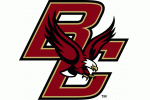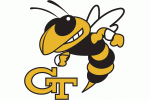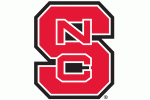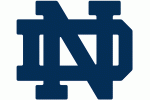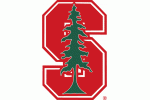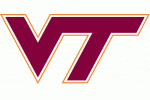Playing off his appearance on "Outside the Lines", there were some nuggets to be found between the lines of a recent radio interview with the former UNC basketball star.
Rashad McCants said in an interview on satellite radio that he has not spoken with the NCAA or UNC since his allegations on ESPN's "Outside the Lines" last month. But there was plenty to be gleaned from his comments by reading between the lines.
Andrew Carter of the News and Observer reports that McCants appeared on Sirius XM Radio with Mark Packer and Houston Nutt on Friday and indicated he was waiting on the NCAA to contact him after he alleged that he had tutors write his papers while using "paper classes" to maintain his eligibility at UNC, and that UNC coach Roy Williams knew of the aberrant courses. Carter writes:
“Not at all,” McCants said during his interview with Packer and Nutt. “I’m still waiting on that. And UNC hasn’t reached out to me, and neither has the NCAA. But we have strategic plans in place to really make some strides and get the awareness out for the people who don’t know anything about what’s really going on.”
It’s unclear who comprises the “we” that McCants described in his interview.
McCants may not have specified who "we" is, but given that much of what McCants said to OTL parrots Mary Willingham/Jay Smith talking points, it's not a stretch to figure out where that might be coming from. Carter continues:
During the interview on Sirius/XM, Packer asked McCants why he chose to come forward now with his allegations. McCants’ answer: “Well, when was there another opportunity to actually talk about the NCAA and academic fraudulence? That wasn’t a topic then. That hasn’t been a topic in the last eight years.”
“The more and more (the UNC AFAM case) unraveled, people reached out to me,” McCants said. “The misconception is people think that I just went forward with this. These people came to me. And I even had reservations before I even said anything, because I knew the backlash and what I was sacrificing. But ultimately, I’ve seen the light at the end of the tunnel saying you can change lives for the betterment and history of the world.
“And that’s what we’re trying to do.”
So the topic of academic fraud and the NCAA hasn't been raised once in the last eight years? You mean like Michigan and Auburn and even UNC for the past three years? The timing wouldn't have anything to do with the fact that McCants came forward during the O'Bannon trial, would it? You know, that part where the NCAA was arguing that athletes are compensated via the value of a college education while critics like Willingham were saying an education was devalued? No, just a coincidence, I'm sure.
It is also interesting to note that McCants is adamant that he was approached and didn't bring this out on his own. The irony, of course, being that people may have respected it more if his revelations had been of his own accord and not revealed as part of another agenda, as evidenced by the "that's what we're trying to do" line. It's also interesting that he seemingly used the word "we" more in this interview than in his three years at Carolina.
McCants also seemed to walk back his allegations about his teammates and their knowledge of and participation in academic fraud, as well as Williams' knowledge of it. Again, Carter writes:
“It was my experience,” McCants said during the radio interview, “and I never pinpointed anybody that directly, never said any names, and I only insinuated my thoughts of Roy actually knowing about it.”
McCants told Packer and Nutt that he didn’t have any conversations with anybody about his academic turnaround in the spring of 2005, when he went from struggling in the classroom to the dean’s list. Asked during the interview how many of his teammates relied on no-show AFAM classes, McCants “that’s not really for me to say.”
“Those guys have to speak for themselves,” McCants said. “I’m not here to throw anybody under the bus. I’m not here to do what they’ve done to me. I’m here to save lives, I’m here to change lives for future generations.”
So now it's his "insinuation" that Roy Williams knew about the paper classes? And while he refused to divulge others who may have shared his academic experiences, he did express surprise that his teammates disavowed him and supported Williams. He also made a comment that may have inadvertently undercut one of Willingham's primary arguments:
McCants during the interview on Sirius/XM said that he and his teammates who won the 2005 national championship “weren’t a tight-knit group” but were successful, anyway, he said, because “we were a very intelligent group of guys who knew what it took to win.”
Oh, so members of the 2005 title team were "very intelligent"? Clearly while intelligence does not directly equate with success in college-level courses, one of Willingham's points of contention is that UNC was admitting academically sub-par athletes and then keeping them eligible with paper classes. Any mention of McCants now notes he was enrolled in paper classes to salvage his own eligibility (which is not exactly true - McCants was not ineligible after the fall of his junior year so the four AFAM classes he took the following spring could not restore an eligibility he never lost), but has anyone ever implied McCants wasn't capable of college-level work? Has anyone ever suggested he was reading below a middle-school level? The same goes for Sean May, whose comments to an Indianapolis newspaper years ago about dropping his double major to AFAM only because it was easier have become part of the scandal canon. Was May incapable of college-level work also?
As for UNC or the NCAA not speaking to McCants, that's no surprise. While I'm sure the NCAA may be interested in hearing what he has to say, there is no doubt the reason for their return to Chapel Hill is access to Julius Nyang'oro and Deborah Crowder, and not McCants. In the meantime, it would probably serve McCants to stop talking at this point. His comments got plenty of mileage, the spotlight is on basketball now, and the NCAA has come back to town. His continued speaking just allows critics to parse his words and pick apart his motives, which are certainly questionable at best.


